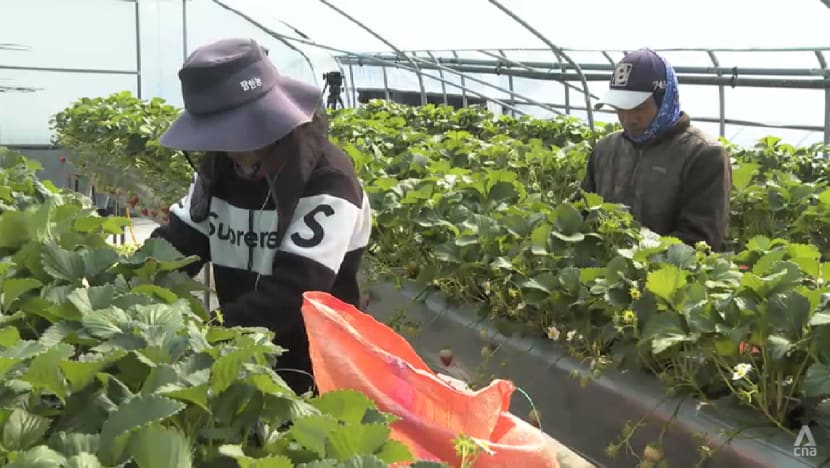South Korea to bring in 110,000 migrant workers this year, but some businesses want more
Some sectors are currently facing a labour shortage, as many young South Koreans shun jobs that are deemed dirty and dangerous.

South Korea has plans to bring in about 110,000 migrant workers this year to work at its farms and factories, but some businesses believe even more will be needed to keep them running.
POCHEON, South Korea: South Korea has plans to bring in about 110,000 migrant workers this year to work at its farms and factories, but some businesses believe even more will be needed to keep them running.
These sectors are currently facing a labour shortage, as many young South Koreans shun jobs that are deemed dirty and dangerous.
In a recent survey by the Korea Enterprises Federation, a major business lobbying group, about 40 percent of the small- and medium-size enterprises (SMEs) surveyed said they did not think the government had fully grasped the scale of the problem.
They said the 110,000 new foreign workers to be brought into the country this year are far from enough to plug the labour gap.
Without these migrant workers, some South Korean farms and factories will be without employees, said observers.
STRONG DEMAND FOR MIGRANT WORKERS
At a greenhouse farm in Pocheon, about 41km northeast of Seoul, foreign workers are in demand, said its owner Kim Jang-yeon.
“Many foreign workers are needed. I also hire local workers during the busy farming season. They account for only about 20 per cent of all workers at our farm,” said Mr Kim.
“The remaining 80 per cent are actually foreign workers and agricultural products are produced by them.”
One Cambodian worker who has been working at the farm for about seven years said the job allows her to send home about US$1,000 every month.
“There are seven people in my family. My father is not around. Only my mother, brothers and sisters,” she said.
“I like it here. My room is pretty and the boss is really nice.”
As South Korea grows increasingly reliant on migrant workers, the country’s treatment of them has come under closer scrutiny.
TREATMENT OF FOREIGN WORKERS UNDER SCRUTINY
Many employers have started building new housing structures for migrant workers, as the government has said it will no longer issue employment permits for employers who house foreign workers in makeshift structures inside vinyl greenhouses.
This comes after a 31-year-old Cambodian worker was found dead in one such structure in Pocheon on a cold winter day in 2020.
Her death highlighted the cruel conditions for foreign workers here in South Korea.
Mr Kim said he took the initiative to build better housing for his workers four years ago, before the government made it mandatory.
“The one before was much worse. It was worn out,” he added. “I decided to build this because I thought I should provide better facilities for the foreign workers.”
While the government has made efforts to improve the situation on the ground, working conditions for many migrant workers remain harsh, said pastor Kim Dal-sung, who runs the Migrant Workers’ Center in Pocheon.
“The Ministry of Employment and Labor is not implementing the new policy properly,” said Reverend Kim.
His group frequently checks on foreign workers, by visiting them at least twice a week and also calling them regularly, just in case they need help.
“This is a region where temperatures go down to minus 15 to 20 degrees Celsius in winter,” said Rev Kim. “It's very difficult for foreign workers from Southeast Asia, where it is hot in all seasons, during the cold winter.”

















